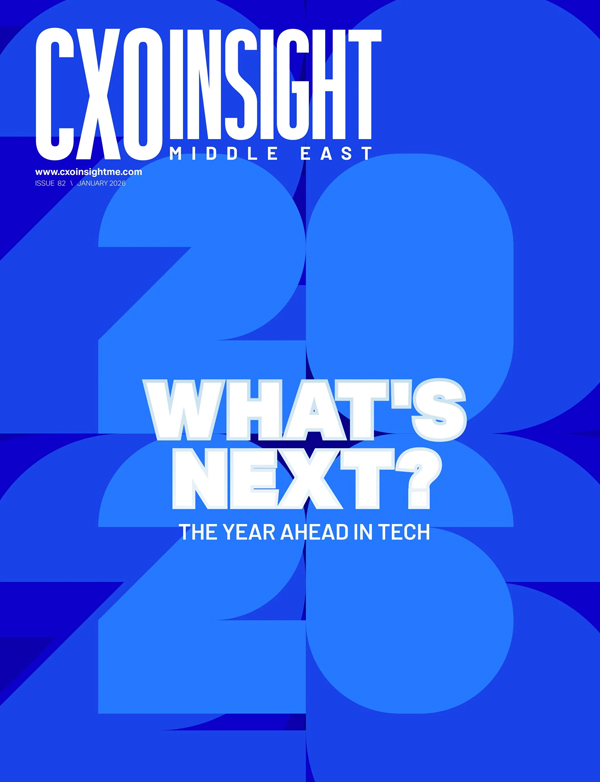Increases in governmental regulations, skyrocketing energy prices, and the impact of extreme environmental events in their communities are forcing companies to evaluate their carbon footprint and to find ways to reduce their emissions to become net zero by 2050. While some companies are further along than others, a recent Forrester survey found that 58% of Global Fortune 200 companies have named a sustainability lead, and 55% have established greenhouse gas emission targets.
To get to net zero, organisations must extend their view beyond their own operations’ emissions to the emissions created by their products and services used by customers. Aruba recognizes we have a shared responsibility to our customers, and in addition to innovations in our product designs, we are actively pursuing additional ways of helping our customers reduce emissions generated by network operations.
As I previously highlighted, Aruba’s focus is on enabling efficient IT operations with the goal of minimising environmental impacts across the product lifecycle and reducing the total cost of ownership for our customers. We approach efficient IT using the following framework:
- Energy efficiency — Deliver an optimum level of power, storage, and connectivity with the lowest possible input of energy.
- Equipment efficiency — Maximise IT processing power and storage capabilities with fewer IT assets.
- Resource efficiency — Engineer products to work efficiently within data centers and at the edge, while requiring the least amount of support equipment and staff for power conversion, cooling, and resiliency.
Maximising efficiency in each of these categories requires a modern network architecture designed for agility and performance at scale. Every element of the ecosystem contributes to the overall efficiency of the network, and when considering the sustainability attributes of individual products, we look at three main functions:
- How they are made – Activities related to creation, production, and lifecycle management
- How they work – Operational properties that optimise power efficiency and performance
- How they are used – Use cases that help customers lower their carbon footprint
How Aruba products are made
How a product is made has a significant effect on its value to our customers, including features supported, quality of service offered, cost of ownership, and environmental impact. When developing a new product, Aruba considers every element of the product lifecycle, including design, material composition and acquisition, production, packaging, transportation, and post-use disposition to ensure they meet our customers’ evolving needs and expectations.
How Aruba products lessen their environmental impact:
- Our products are free of heavy metals and ozone depleting components
- New products are designed to use low-halogen PCBs
- Our products are engineered to be easily recycled
- All products are manufactured in compliance with strict regulatory and HPE-directed requirements
- Our product packaging is comprised of up to 80% recycled materials
- We also offer valuable lifecycle management services that alleviate the burden of managing and responsibly dispositioning network assets. With global reach and the largest technology recovery centers in the world, HPE offers IT asset lifecycle solutionsto help customers reclaim asset value, simplify lifecycle management activities, and create circularity as they migrate to HPE GreenLake for Aruba.
How Aruba products work
Equally as important to the performance and sustainability profile of our products is how they work. We use innovations that enable maximum power efficiency such as power management features, platform operation, built-in intelligence, streamlined workflows, and standards compliance.
How Aruba products work more sustainably:
- Patented intelligent power management features in Aruba access points minimise power consumption by consuming an average of only 50% of the total power capacity in real world deployments.
- Energy efficient Ethernet and the use of 80+ certified power supplies on Aruba switches reduce power consumption by 50% and – up to 80% or more during periods of low data activity.
- Cloud-based network management hosted in energy-efficient data centers is reported to be 3.6 times more efficient than traditional enterprise data center operations.
The AI and automation in Aruba’s management platform, Aruba ESP (Edge Services Platform), diagnoses network issues in real time, accelerating IT response, lowering help desk tickets, and enabling efficient power usage. Inefficient networks are analogous to leaky water pipes. Just as leaky pipes waste water, inefficient networks waste energy. A network draws power to operate. For example, by using AIOps, you can eliminate 75% of your helpdesk tickets, improve the efficiency of your network, and reduce the amount of wasted power and human capital (which can be better spent on strategic initiatives) that would otherwise be spent on resolving network anomalies. Client authentication issues, inefficient load balancing, switch port errors, and a host of other network issues lead to unnecessary power consumption.
How Aruba products are used
It is also important to examine the ways our customers leverage our products to deliver value to their businesses, including secure high-performance connectivity that empowers workforce productivity, streamlined workflows that drive IT resource optimisation, and additional applications that enable control of key resource consumption.
For instance, Aruba’s network management console consolidates multiple functions on a single cloud platform, simplifying IT workflows and reducing the number of point solutions. Our customers can avoid purchasing additional hardware, power, and HVAC resources.
Aruba Central also enables Zero Touch Provisioning of equipment, which allows devices to be centrally configured, shipped to remote locations and easily installed, eliminating the need to send skilled technicians to remote locations. Not only is this process more efficient, but it also lowers greenhouse gas emissions by 650g CO2 for every kilometer not driven.
There are also innovative IoT applications that enable efficient resource management and smart office improvements ― including sensors that monitor power, lighting, cooling, and water to name a few. Aruba’s network architecture enables direct connection of these devices through Bluetooth, Zigbee, and PoE ports on APs. Having a direct connection not only enables customers to broaden the mechanisms used to make their corporate environments more efficient, but also eliminates the need for overlay appliances that would increase cost, carbon emissions, and lifecycle management activity.
While I’ve noted a few sustainability-focused innovations, there is much more to be done, and we are just getting started. As an industry leader in sustainability, HPE has committed to become net zero by 2040, with an interim goal of lowering Scope 3 emissions ― those generated by our customers while using our products ― by 42% by 2030. As an integral part of HPE, Aruba actively supports these goals.
To accelerate momentum, we have mobilised cross-organisational teams to further investigate and develop sustainable features, responsible supply chain solutions, and Tech for Good initiatives that will improve the sustainability profile of how our products are made, how they work, and how they’re used. I am excited about the great work being done by these teams, and I look forward to sharing more with you in the months to come.










Discussion about this post